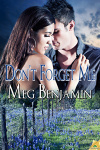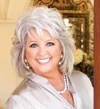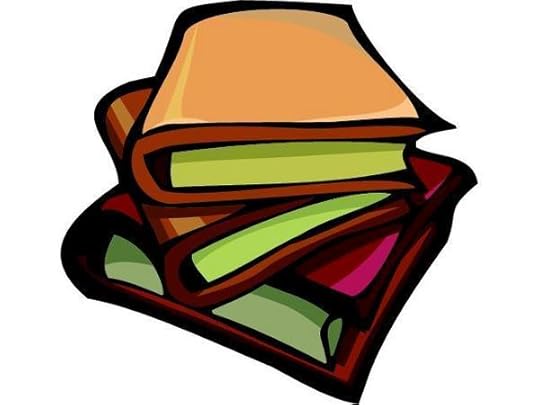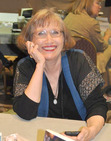Meg Benjamin's Blog, page 22
December 22, 2011
And the Winnah Is…
December 5, 2011
Don't Forget Me–Please!
 The Book
The Book
So it's finally here: the release date for my sixth Konigsburg book, Don't Forget Me. The story of Nando Avrogado and Kit Maldonado.
The first four Konigsburg books were pretty straightforward: I had four brothers, so I needed four books. After that, I wasn't sure whether I'd stay in Konigsburg or go somewhere else. But it turned out that once I'd created the town, I didn't want to leave it. I knew the place and the people. And I knew they had a lot more stories to tell.
Book five, Brand New Me, introduced a lot of new characters, although some of the Toleffsons wandered through just to show they were still in town. It was sort of fun to have characters who didn't have a common backstory. I got to let my mind wander through the Faro tavern, sketching in new people like Clem Rodrguez and Chico Burnside.
And now I'm back again, but the characters this time around are a mixture of new and old. If you've read the other Konigsburg books, you may remember Nando and Kit. Kit showed up first as a teenager in the very first book, Venus In Blue Jeans. Nando arrested a drunken Otto Friedrich in Wedding Bell Blues. Both of them played supporting roles in Long Time Gone, then Kit went back to San Antonio and Nando became Tom's best friend in Brand New Me. They're surrounded by characters you may have met before: Allie Maldonado and her fiancé Wonder Dentist, Tom Ames and Deirdre Brandenburg, and Erik Toleffson, among others—and there's a very familiar villain. But there's also a new guy in town: Joe LeBlanc, head chef of the Rose restaurant where Kit is the manager, and Joe brings along more people to meet and wonder about.
All of these people surround Kit and Nando in their attempts to overcome the past and get back together again. Some of them are cheering and some are throwing up roadblocks. Reunited lovers always have lots of bumps in the road, and these two are no exception. But needless to say, their problems are resolved in the end.
I'm already thinking ahead to future books, assuming Samhain continues to put up with me and Konigsburg. Joe LeBlanc obviously deserves his own story, and there's a new cop in town who has lots of possibilities, although he's a little wet behind the ears. Some readers have said they want to know more about Chico and Marilyn. I like Chico a lot, but I don't think Marilyn's good enough for him. On the other hand, I have a few ideas for someone who might work. I'm open to suggestions, though. Is there anybody you'd like to see more of?
Anyway, here we are, back in Konigsburg again. And I can't tell you how glad I am to be here!
The Contest
There is, of course, a contest to go along with release day here. I'm giving away a copy of Don't Forget Me to one of the commenters on this blog. Just leave a comment and I'll enter your name in a drawing next week.
The Blurb
Once they said goodbye forever. Now they want to walk it back.
Konigsburg, Texas, Book 6
Eighteen months ago, Kit Maldonado was so over Nando Avrogado, she left Konigsburg without a backward glance. With the family restaurant in San Antonio sold out from under her, though, she's back to manage The Rose, an exclusive resort eatery outside town.
Dealing with a stingy boss, an amorous head chef, an understaffed dining room and planning her aunt's wedding should have kept her hands full. But she realizes she might not be as over Nando as she thought.
As the town's new assistant chief of police, Nando's got enough trouble without sexy Kit fanning embers he thought had long ago turned to ashes. Every time he turns around, she's there—and it doesn't help that everyone in town wants to see them back together.
One incendiary kiss, and there's no denying the force of their attraction. But there's a mysterious and oddly familiar burglar who's been lurking around Konigsburg, someone who isn't above a little mayhem—maybe even violence—to cover his tracks.
Product Warnings
Contains hot makeup sex, wedding madness, a hot chef, vengeful burglars, and unlawful abuse of a wedding cake.
The Excerpt
Nando Avrogado was hiding. Granted, the Dew Drop Inn didn't provide much in the way of cover, although it was dark enough to make identifying anyone pretty challenging unless you were less than six inches away. Granted, Nando himself, at six three and a hundred eighty-eight pounds, was somewhat difficult to hide, even when he wasn't in uniform (as he wasn't at the moment). Nonetheless, he was hiding. From Francine Richter, five three and a hundred five.
It was embarrassing. It was nothing a mature adult male of twenty-eight should be doing.
He should just get over it. He knew that. He should just head down the street to the Faro tavern, where he usually hung out, and take his punishment, whatever that punishment turned out to be—tears, curses, possibly violence. It wasn't exactly his fault that Francine hadn't understood the meaning of their goodbye date the way she was supposed to. It sure wasn't his fault that she'd been leaving messages on his voice mail for the past two days.
Except that it was his fault. Sort of. He'd tried to make it clear throughout their handful of dates that nothing more serious was on the horizon for them. That they weren't going to hook up for the long term. That they were just having some temporary good times.
And in reality, the times hadn't even been all that good after the first couple of dates. He had to admit that, for the most part, he'd just been going through the motions. Francine was okay. She didn't natter too much. She looked good. She was…a decent kisser. Not bad exactly, but not good either.
Nando sighed, taking a sip of his lukewarm beer. If he were honest, it wasn't Francine who'd been the real disappointment. He was the one who wasn't measuring up to expectations, Francine's for sure, but his own too. Given his lack of enthusiasm, maybe it was just as well that they'd never progressed beyond a few hot make-out sessions on Francine's couch.
Of course, if he were honest he wouldn't be sitting in this dive, drinking beer that tasted like dishwater. He'd be down the street with his friends at the Faro, drinking some honest brew and dealing with Francine when and if she showed up.
He rubbed his eyes and fought back the impulse to groan in frustration. God, he was tired. And it wasn't just the hours from his job as a Konigsburg cop. During the last few months he'd seemed to fall into a rut that just got deeper and deeper. Same people, same problems, same everything. When had this feeling started anyway? And why? He'd gotten all the things he'd once thought he wanted in his life—full-time appointment to the Konigsburg police force, a decent place to live away from his parents (sharing an apartment with his brother Esteban, but doing that wasn't such a bad deal), an active social life without being tied down to anybody.
Yeah, right. It was that "active" social life that was the problem. Maybe he should try deliberate celibacy rather than the unintentional kind for a while. See what it felt like to not hit the clubs on his night off. The whole excitement-of-the-chase thing was getting very old. And truth be told, the chase hadn't been that exciting for a long time. Eighteen months, in fact.
Don't go there. It's over. No matter how much you wish it weren't.
"Geez, where'd you hide the body? You look like a man at a wake." His brother Esteban slid onto the stool next to him, waving a hand toward Ingstrom, the bartender. "What are you doing here anyway? I thought you did your drinking at the Faro these days."
"I could say the same thing about you." Nando took a disgruntled pull on his beer. "I don't think I've ever seen you in this dive before."
Esteban cleared his throat. Ingstrom, who owned the Dew Drop Inn as well as being its bartender, was standing across from them behind the bar. He scowled at Nando before turning to his brother. "You want beer or wine?"
"Lonestar," Esteban said hastily. He was the assistant wine master at Cedar Creek Winery, which meant he routinely avoided the wine-in-a-jug served by the Dew Drop Inn. "You still haven't explained why you're here," he continued as Ingstrom headed back down the bar. "I haven't seen you in the Dew Drop for a couple of months. Why aren't you at the Faro watching Deirdre Brandenburg serve beers like every other red-blooded man in town?"
Nando shrugged. "Deirdre's attached to Tom Ames. If I start ogling Deirdre, he's likely to put Ipecac in my beer. Besides, the Dew Drop's closer to home. I didn't feel like walking."
Esteban smirked. "Yeah, those three blocks will really do you in. Especially with the temperature hovering in the high seventies."
"Get stuffed," Nando muttered, but his heart wasn't in it.
Esteban turned, resting his elbows on the bar behind him as he surveyed the room. "You trying to avoid your latest fling? I'd say that's a heavy price to pay for romance gone wrong."
Nando studied his younger brother with hooded eyes. Esteban looked like a linebacker, which he'd been in high school, or like someone who bench-pressed wine barrels, which he also did frequently. He wore his hair almost as short as Nando's, even though the management at Cedar Creek wasn't as stiff about hair length as Chief Toleffson was at the cop shop. But he made up for the hair with the luxuriant moustache that curved around his mouth. His skin was darkened from working in the vineyards—just like their father.
"What would you know about romance gone wrong?" Nando grabbed a handful of peanuts. "I haven't noticed you tearing up the town with anybody since you broke up with Dawn Benavidez. And that's been over three months, bro."
Esteban shook his head. "Nice try, but we're not switching the subject of this conversation to me. Are you or are you not trying to avoid Francine Richter?"
Nando blew out a breath. "Maybe."
"Right." Esteban shook his head. "You don't think that's a little pathetic? Hiding out in a joint like the Dew Drop just to avoid a woman you dated for a couple of weeks?"
Nando ran his glass through the circle of condensation on the bar. "I can drink where I want, bro. Who knows? Maybe I'll check out the talent around here this evening." There had to be some. Even at the Dew Drop.
Ingstrom set Esteban's draft on the bar with a clink. "Stay away from my barmaids, Avrogado, they got work to do." He stomped back to the other end of the bar.
Nando took a quick survey of the Dew Drop's barmaids, the most prominent one anyway. Ruby looked more like a biker chick than usual. Tonight she had on a leather vest that was zipped partway up her sizeable chest and blue jeans that showed a roll of white flesh at the waist. Her magenta hair was caught in a banana clip that looked perilously close to slipping out. Every man in the bar was trying not to look down her cleavage, knowing the instant retribution that followed. As if she sensed she was being watched, Ruby caught Nando's eye. Her lip twisted in a world-class sneer.
"Now going after that really would be pathetic," he muttered.
Esteban nodded. "True that. So why can't you just tell Francine it's over? Fun while it lasted, time to move on and so forth."
Nando grimaced. "Because I'd rather not get into one of those discussions where you end up either making somebody cry or making somebody mad enough to bean you with her purse. If I stay out of her way long enough, she'll get the message."
"And that way you just come off as a jerk instead of a sleaze."
Nando gritted his teeth. "You could put it that way."
"You know, bro, sooner or later all this bad karma you're building up with women is going to come back and bite you on the ass." Esteban took a long swallow of Lonestar.
"What are you, some kind of wine-making Buddhist now?" Nando shook his head. "This doesn't qualify as bad karma. So I don't like talking about 'relationships' with women. Name me one man who does."
Esteban shrugged. "I'm just saying if all the women you've screwed around with over the past few months ever got together, you'd be a dead man."
Nando rubbed his eyes again. The vision of all his recent exes getting together, possibly with automatic weapons, was not altogether comfortable. "Yeah, well, I'm thinking of cutting back. Maybe putting the brakes on the relationships for a while. Take a breather from women."
"You?" The corners of Esteban's mouth curved up. "You're giving up women? Maybe I should spread the word. I could sell tickets."
A slight prickle of unease slid down Nando's spine. He wasn't that much of a womanizer, was he? He never used to think of himself that way. Of course, that was before the major fuck-up of his love life. "Do not spread the word." He gritted his teeth again. "This was just between the two of us. And I haven't decided for sure what I'm going to do. Just thinking about it."
Esteban nodded, still grinning. "Right."
Nando drained the rest of his beer. Screw it. "I'm going down to the Faro, see what's going on. You want to come?"
"Maybe later." His brother peered toward the far corner of the bar where Britney Collins was seated with a couple of her girlfriends.
Nando rolled his eyes. Clearly, he wasn't the only Avrogado who had females on the brain. "Good luck with that."
He dropped a handful of bills on the bar, then pushed back, dodging around a couple of protruding rear ends to get to the door. Among other things, the Dew Drop was short on open space, particularly since Ingstrom had added some extra tables in the middle of the room. Nando ran through the bar's very own obstacle course, then opened the door to the street.
It took a minute for his eyes to adjust to the early evening light. People still strolled down Main, ducking into the few open stores. Mid-March wasn't a great tourist time in Konigsburg, but they got some families who filled up the motels and bed and breakfasts for Spring Break. He settled his Stetson on his forehead and started up the street toward the Faro.
Ahead of him the crowd parted for a moment and he saw a swing of long dark hair reaching down below a woman's shoulders. Nice. For a moment, he concentrated on her as she walked up the street in front of him, wondering what she'd look like when she turned around. You could never predict exactly how attractive someone's face would be based on her back side.
Nando grimaced. He really needed to stop ogling women. Particularly if he wanted to take the whole celibacy thing seriously. Besides, if anyone ever heard him talking about faces and back sides like that, he'd be banned from the female sex for life. Which you would richly deserve, and which might not be such a bad thing.
A couple walking in front of him turned in to one of the candy stores and he got a better look at the woman up ahead. Silken dark hair, slender waist, long, long legs that showed off well in her white Capri pants. Nando finally gave in and checked her behind. More than respectable. The whole package was superlative, in fact. Always assuming the face matched.
What the hell are you doing? You're supposed to be giving this up. You know it won't go anywhere.
Nando shook his head. Going cold turkey was going to be a lot harder than he'd thought. On the other hand, he couldn't go on indefinitely moving from woman to woman like some deranged honey bee, could he? Time to start being selective. Time to learn how to pace himself.
Time to grow up. More than time, if he were honest. He grimaced. That one hurt, largely because it was true.
Ahead of him, the woman slowed alongside Docia Toleffson's bookstore. Slowed and then stopped, staring in the window. After a moment, she waved at someone inside. Nando let his own pace slow down so that he wouldn't pass her just yet. He really wanted to see her face.
The door to the bookstore flew open, and Docia Toleffson herself stepped out, all six feet of her—maybe seven feet if you counted that pile of red hair on top of her head. She grinned at the stranger and then extended her arms to give her a hug. As she did, Nando got his first look at the woman's face.
His heart stuttered and then promptly dropped to his shoes. Oh god, of course. I really had this coming.
"Kit," Docia was saying. "Kit Maldonado. Where have you been keeping yourself? Allie said you were coming back this week. Oh, it's so good to see you!"
Kit said something back, but Nando didn't hear it. He was too busy stepping backward into the doorway of another shop where he'd have some cover. The last thing he wanted right then was a conversation with Kit. Hell, he didn't even want her to see him just yet. Not until he figured out what exactly he was going to say to her. And how he was going to say it. And what it would mean.
Kit Maldonado. Here. Back in Konigsburg.
For a moment he swore he could almost hear Esteban laughing. The force of karma had just sunk its teeth firmly into his ass.








December 1, 2011
Secret Babies and Doody-Heads
 When we Nine Naughty Novelists wrote our first serial parody, The Zillionaire Vampire Cowboy's Secret Werewolf Babies, we knew we wanted to include the classic "secret baby" plot twist. In fact, we wanted to up the ante by making those secret babies twins (the mother was a werewolf, so multiple births weren't exactly unheard of). But lately I've been thinking about the whole "secret baby" idea. Why do so many readers find it appealing? Because the thing is—it's actually sort of icky. No, really.
When we Nine Naughty Novelists wrote our first serial parody, The Zillionaire Vampire Cowboy's Secret Werewolf Babies, we knew we wanted to include the classic "secret baby" plot twist. In fact, we wanted to up the ante by making those secret babies twins (the mother was a werewolf, so multiple births weren't exactly unheard of). But lately I've been thinking about the whole "secret baby" idea. Why do so many readers find it appealing? Because the thing is—it's actually sort of icky. No, really.
First of all, what credible reason can you come up with for a woman to keep a pregnancy secret from her partner? I suppose if the partner were a horrible person, you might want to do that, but I've seldom run into that particular plot twist. Loretta Chase does something like this in Not Quite a Lady, where the impregnator is a rotter and the heroine must protect her reputation, so informing him is never an option. However, most of the unknowing baby daddies in romance are the heroes of the books—good guys, in other words. Or guys who could become good with the proper motivation.
I suppose the heroine could have no idea what had become of the hero and thus be unable to notify him. Nora Roberts does this in Honest Illusions, where the hero disappears without a trace because of a complex plot twist. But it's hard to pull off unless the hero is declared dead or taken prisoner and kept incommunicado. I suppose there's always amnesia, but that particular plot device usually stretches credulity to the breaking point. So it's hard to create a situation where the heroine couldn't let the hero know somehow.
Which means the heroine has chosen not to let the hero know because she's, well, pissed. This seems to be the most common plot device. Hero and heroine have a major fight, break up, heroine discovers she's pregnant but refuses to tell hero because he's such a doody-head. Right. Now think about that for a moment. Heroine actually chooses to become a single mom, one of the toughest jobs around, because she's mad. What kind of woman does this? Probably a doody-head. This particular plot twist requires you to admire a woman who's behaving very badly indeed, and who's taking the chance of hurting an innocent child because she's too immature to get over it.
So now we come to the hero. He's required to discover that a) he's a daddy and b) he actually loves his baby mama. And he's supposed to be really blown away by the baby and to want desperately to be her/his parent. Again, in real life the chances of this happening are somewhere around nil. Look at the number of baby daddies who demand paternity tests rather than becoming all dewy-eyed at the thought of having a little bundle of joy (I'm lookin' at you, Eddie Murphy). But this is romance, and fairy tales are pretty standard in our business.
So why do readers love secret babies? Maybe because it's the way we wish things could be. Women strong enough to raise great kids on their own (and the kids are always great, you notice). Men responsible enough to love both their children and the women who produced them.
And, of course, HEA. I just wish the whole idea didn't make me feel slightly queasy.








November 17, 2011
Food Books: A Thursday Thirteen
 As I've mentioned before, I love to cook. I also love to read about cooking, and with Thanksgiving coming up food is definitely on my mind. So here are thirteen books that are fun to read—some of them include recipes, but not all. Most, however, include a lot of enthusiasm about food.
As I've mentioned before, I love to cook. I also love to read about cooking, and with Thanksgiving coming up food is definitely on my mind. So here are thirteen books that are fun to read—some of them include recipes, but not all. Most, however, include a lot of enthusiasm about food.
1. Ruth Reichl, Garlic and Sapphires. I'm a late addition to Reichl's fan club, but I'm here to tell you the woman knows how to write about taste. This book is her account of her years as a restaurant critic at the New York Times and it's both hilarious and touching (it tells you something about Reichl that she can actually be touching when she talks about food).
2. Jacques Pepin, The Apprentice, My Life In the Kitchen. Pepin's account of his career as a chef—it's unpretentious, funny, and endearing. Plus if you've ever wondered about the origin of the famous SNL sketch where Julia Child bleeds to death while pleading with us to "save the liver," Pepin can tell you about it.
3. Jessica Harper, The Crabby Cook. Harper is one of those irritating people who's had several successful careers—actress, children's songwriter and singer, and now cookbook writer. Her account of cooking for her husband and two insanely picky children is hilarious, even if it does include dinners with Richard Gere.
4. Peg Bracken, The I Hate To Cook Book. A classic, recently reissued. Bracken doesn't really hate to cook, but she has limited time to do it and she assumes you do too. If some of the recipes are a little dated, they're still fun to read.
5. Jason Sheehan, Cooking Dirty: A Story of Life, Sex, Love and Death in the Kitchen. If you've ever wondered how your food gets cooked and served in a restaurant, Sheehan will tell you—more, in fact, than you ever wanted to know.
6. Anthony Bourdain, Kitchen Confidential. I have a love-hate relationship with Bourdain, and frankly, it's mostly hate (his disdain for home cooks as opposed to chefs rubs me the wrong way). But his accounts of how chefs work are fascinating, and in truth he's almost (but not quite) as tough on himself as he is on Paula Deen.
7. Alton Brown, I'm Just Here For the Food. I've also got a love-hate relationship with Alton Brown, but here it's mostly love. I enjoy Brown's quirky approach to food science, but frankly I like reading about what he does more than using his recipes.
8. Lynn Rosetto Kasper and Sally Swift, How To Eat Supper. I love Kasper's NPR show The Splendid Table, and this book has the same kind of well-informed but good-humored approach.
9. Christopher Kimball. The Kitchen Detective. You either enjoy Kimball (editor of both Cooks Illustrated and Cooks Country and host of America's Test Kitchen on PBS) or you find him insufferable. Most of the time I enjoy him, and The Kitchen Detective has all the kind of obsessive-compulsive approach to cooking that you get in his magazines.
10. David Zinczenko, Eat This, Not That 2012. Okay, I know, what's this doing in a list with Jacques Pepin and Ruth Reichl? Zinczenko, like a lot of diet gurus, doesn't seem to have much appreciation for the pleasures of food (although he's very clear on the dangers). Still, I get a kick out of reading just how screwed up many fast food restaurants are, turning something as healthy as a chicken sandwich into a nightmare.
11. Julia Child, My Life In France. A wonderful portrait of Europe during the fifties and of Child's coming of age as a chef while learning to cook. Generous, funny, and beautifully written, it's a must for anybody who wants to see where the Julia sections of the movie Julie and Julia came from.
12. Bill Buford, Heat. If you're an enthusiastic home cook, like me, and you've ever thought about apprenticing in a restaurant to improve your techniques, Buford's book will cure you.
13. David Kamp, The United States of Arugula. I can't imagine sitting down and reading this book straight through (the print is insanely small for one thing), but if you're interested in the origins of the current mania for good food and good cooking, Kamp can tell you all about it—and he does.
So who did I miss? What food books are your favorites?








November 10, 2011
Accents, Apostrophes, and Elisions Oh My
 So the hero in my current WIP is from Louisiana. I can hear his voice in my head when I write his dialogue, which is always handy (the voice is sort of based on some Louisianans I've known, although the character isn't). But when it comes to writing that dialogue out, I have some problems. The voice I hear drops a lot of g sounds at the ends of words. But when I write the dialogue, those g's just won't disappear.
So the hero in my current WIP is from Louisiana. I can hear his voice in my head when I write his dialogue, which is always handy (the voice is sort of based on some Louisianans I've known, although the character isn't). But when it comes to writing that dialogue out, I have some problems. The voice I hear drops a lot of g sounds at the ends of words. But when I write the dialogue, those g's just won't disappear.
Dialects are a pain in the butt, y'all. Basically, if you decide to use them when you write, you can't go halfway. If the character says gonna and gotta in one place, you're pretty much stuck with having him say it in all the other places too (unless the first one is clearly meant to be a joke). I mean, can you have a character who says gonna at one point and going to at another? I think not.
But this, in turn, means you're going to have to pay attention to how you want to spell this stuff and you're going to have to be very careful when you write the dialogue. If you decide to have a character refer to them as em, you know it's going to have to be spelled 'em EVERY EFFING TIME. Then there's the whole spellcheck problem. I get a start every time I look at the page and see all those little red underlines (Word hates dialects).
I find that instead of using dialect, I sort of rely on my readers to do it for me. With any luck a couple of darlin's will be enough to give a reader the clue that this particular character talks kinda slow (kinda is, of course, another butt pain word).
My other problem with dialects comes as a reader, though. I purely hate any dialogue I have to read out loud in order to get the gist. I just read a couple of classic British mysteries where the author had secondary characters speaking in unfamiliar British regional idioms. I had to repeat each speech carefully in order to figure out what the hell the characters were saying. And then I got to experience the true joy of realizing the speeches themselves weren't that important. The author had apparently thrown them in for "local color." Do I have to tell you I wasn't pleased?
More skillful writers convey the sound of the character's voice through the arrangement of words rather than weird spellings and apostrophes. Sarah Smith deals with a lot of different social classes and nationalities in her Vanished Child series, and she does most of it with the words people use and the way they arrange them. Apostrophes do not necessarily dot her pages.
There are a few books where the dialects used are crucial. Huck Finn leaps immediately to mind, for example. I wouldn't have Huck speak any other way. But I'd argue that those examples are rare. Any time you see a lot of apostrophes coming up, you're probably in for a tough time. And as a writer, after a couple of pages of advanced punctuation, you may decide to take that good ol' boy from South Louisiana and make him an insurance salesman from Dubuque.








November 2, 2011
Chefs Vs. Cooks
[image error]So Anthony Bourdain is at it again. The author of Kitchen Confidential and the host of No Reservations has a bone to pick with the Food Network. Mainly, he hates a lot of their chefs, or rather he hates a lot of their cooks.
In the professional food world, chef and cook have particular meanings. Chefs usually have degrees from culinary schools and are the heads of kitchens. Cooks have no degrees and learn by doing. In a restaurant they're the ones who cook the meals the chef creates.
Bourdain considers most of the Food Network's female stars, who lack the requisite degrees from culinary school, to be the equivalent of second-rate restaurant cooks. He gives Rachael Ray a pat on the head because she's cute and nice, but he dismisses her food as "mediocre" and sometimes plain awful. Sandra Lee is "as stupid and untalented as Britney Spears" (on another occasion she was "pure evil").
 But his vituperation of Paul Deen is the most extreme: Deen is "the worst, most dangerous person to America" because she knowingly creates terrible recipes that will increase the already dangerous level of obesity in the US.
But his vituperation of Paul Deen is the most extreme: Deen is "the worst, most dangerous person to America" because she knowingly creates terrible recipes that will increase the already dangerous level of obesity in the US.
Now it's worth pointing out that Bourdain himself got his start in French cooking, which is hardly a model of healthy food, given its abiding love of butter and heavy cream. But there's more going on here than simple hypocrisy, I think (or simple self promotion—every time Bourdain takes another swipe at the Food Network, he gets national coverage). Bourdain and his buddies are doing what chefs have done for generations. He wants to put those uppity women back in their place.
You see, there's a larger meaning for cook than just the one used in the restaurant trade. Cooks are also the people, most frequently women, who get the meals on the table across the country, hell, across the world. They're the ones who try to figure out what to serve a bunch of hungry people every night, usually people who are related to them either by genes or affection. There's a long tradition of learning from these people since they've spent a lot of years in front of a stove, frequently developing and maintaining the recipes of a family or a culture. There's also an equally long tradition of holding them in contempt, at least from the point of view of the professional chef, particularly the male professional chef.
But my question is this: why are restaurant chefs necessarily the ones we should learn from? It's true that restaurant chefs get meals out the door every day and night, and their volume is a lot higher than home cooks. But home cooks like me don't have a lot of the things they take for granted. My stove can't get super hot, for example, and neither can my oven. Prime cuts are out of the question even if I could afford them since they almost never show up in grocery stores. In fact, grocery stores don't carry a lot of the items that restaurant chefs can't live without, including exotic herbs and fresh seafood (most of the fish in my area is frozen). So I may get a kick out of watching Mario Batali work, but I know damn well I'll never be able to duplicate what he does in my home kitchen. No, if I want to see something I actually have a chance of cooking at home, I'll turn to someone like Sunny Anderson or Ina Garten.
And why shouldn't ordinary cooks have a voice too? If I wanted to know certain things—how to fry chicken or fix collard greens, for instance—I'd sure as hell take Paula Deen's word over Anthony Bourdain. The woman may not know how to make beurre blanc, but she's done a country-fried steak or two, and she did them on a standard kitchen range.
So I'll go on enjoying restaurant food when I'm in a restaurant and I'll go on enjoying Batali and John Besh, but I have no problem watching a woman in a home kitchen show me how to cook meatloaf. At least I'll have a fighting chance of being able to do it myself.
[image error]
 [image error]
[image error]





October 20, 2011
Bummer
 The hubs and I started watching Luther for a couple of reasons. First, our younger son had recommended it, and second, it starred Idris Elba whom I'd come to respect for his work in The Wire, one of my all-time favorite shows. We've now watched the entire first season of Luther, and while it's well done with a fascinating premise (detective establishes unwilling connection with woman he knows to be a psychopath), it's also a major downer. In each episode the main character, John Luther, seems to become more obsessed with his own personal demons and seems closer to unraveling.
The hubs and I started watching Luther for a couple of reasons. First, our younger son had recommended it, and second, it starred Idris Elba whom I'd come to respect for his work in The Wire, one of my all-time favorite shows. We've now watched the entire first season of Luther, and while it's well done with a fascinating premise (detective establishes unwilling connection with woman he knows to be a psychopath), it's also a major downer. In each episode the main character, John Luther, seems to become more obsessed with his own personal demons and seems closer to unraveling.
This places Luther squarely in the ranks of other BBC series that seem to specialize in bumming out the audience: Wallender and Torchwood are others in the same category. And I should point out, I've stopped watching both Wallender and Torchwood for that very reason. I don't mind a dark point of view, but I'm not particularly into bleak.
But you might ask why, in that case, I'm so fond of The Wire, one of the bleakest series ever produced on American TV, and why I'm equally fond of Treme, which is produced by the same people. The reason, I think, is that they're American bleak, and American darkness has always been leavened with black comedy.
Treme, which takes place in post-Katrina New Orleans, is full of bitter, frustrating moments (one of the characters commits suicide at the end of the first season), but it's also full of weirdly joyful ones. Steve Zahn plays a wacky but ultimately endearing musician who's continually seesawing between the ridiculous and the sublime. The great Wendell Pierce is a struggling trombone player who alternates between financial problems and faintly hilarious predicaments, including a poker game with some legendary New Orleans musicians (Irma Thomas cleans his clock). And the other characters drift in and out of bad times and good times (with the exception of the wonderful Khandi Alexander, whose life seems to be one disaster after another).
The dark series on the BBC don't really have that alternation. Once it's dark in Luther, it stays dark, and you're not going to see Idris Elba smile (a real waste if you ask me). Frankly, I get sort of tired of that approach. If I know a show is going to end with a miserable resolution and that a character I'm supposed to like is going to suffer endlessly, I'm not going to watch it with anything like enthusiasm. After a while, I got tired of Torchwood's tendency to kill off its characters and to end every episode with misery.
I've already written about the contrast between Kurt Wallender and Raylan Givens on Justified, and I stand by my assessment that Raylan is a more interesting character. But now I think I'd expand that to say that I prefer American darkness to the European kind. At least with dark American series, you know there will be some variety rather than unrelieved black.
At the end of the first season of Treme, the characters have a panoply of reasons to feel like crap—they've lost family and friends, their livelihoods are in serious jeopardy, and it's not at all clear that the city will be able to recover. But the final episode of the season includes a jazz funeral that ends with the traditional dance back from the cemetery. And the characters, even those with every reason to be heartbroken, dance. Bless 'em.





 [image error]
[image error]

October 13, 2011
Chemistry
 I recently read a romantic suspense novel from an author I really like—I think I've actually read everything she's ever written. The plot in this one is up to her standard—intricate, complex, and growing out of a confluence of motives that are tough to anticipate. And the hero and heroine have zero chemistry.
I recently read a romantic suspense novel from an author I really like—I think I've actually read everything she's ever written. The plot in this one is up to her standard—intricate, complex, and growing out of a confluence of motives that are tough to anticipate. And the hero and heroine have zero chemistry.
I thought about this when I reached the midpoint of the book. The h/h kept looking at each other lustfully, reacting to broad shoulders and a neat feminine figure. And the hero keeps saying (in the requisite husky voice) that he plans on going to bed with the heroine. But I never believed it. I kept thinking if they went to bed together, the only thing they were going to do was sleep.
I'm not sure what makes for believable chemistry between a hero and heroine, but I think first of all readers have to find them attractive in their own right. In other words, we have to like them first before we can believe their significant other would fall for them. In a way, we have to fall for them too. That's the problem I have with a lot of the eighties-style caveman alphas—I don't much like them personally and I have a hard time believing any sane woman would feel otherwise.
But it isn't just the hero who has to be likeable. Take Mary Shannon in In Plain Sight. Mary is irascible, pigheaded, and sometimes seems to dislike everyone around her. But she's also honorable to those she cares about and surprisingly vulnerable for someone so seemingly immune to public opinion. I like Mary a lot. But I didn't like the heroine of this novel, who came across as altogether too cold and invulnerable. She was very good at her job, but she didn't seem to feel much for anyone else. Around the fifth time she told the hero she wasn't interested in him (the point at which you normally mutter yeah, right), I began wishing he'd take her at her word.
For attraction to be genuine, then, it has to be based on something real. You have to believe the h/h could actually fall for one another. If they're going to go around denying their attraction, as is common in romance, you have to feel that deep down they know it's a lie. Deep down they know they want each other bad. And for all of that to happen, you have to feel attraction yourself. You have to feel that, yeah, that guy really is pretty hot and yeah, that woman probably could kick up a hormonal rush or two.
If you don't feel that way, and I didn't in this particular book, it's really hard to believe anybody else would either. By the end of that book, I found myself hoping the h/h there would shake hands and head off into the sunset—with somebody else.
[image error] [image error]






October 6, 2011
No, But I Read the Book
 A couple of weeks ago, the redoubtable PG Forte and I had an extended debate on Twitter (as we're wont to do) about the merits of True Grit. PG preferred the Henry Hathaway/John Wayne version. I'm a fan of the Coen Brother/Jeff Bridges one. I don't want to rehash the entire discussion here, but the gist of my argument was that the Coen Brothers were more true to Charles Portis's book than Henry Hathaway was.
A couple of weeks ago, the redoubtable PG Forte and I had an extended debate on Twitter (as we're wont to do) about the merits of True Grit. PG preferred the Henry Hathaway/John Wayne version. I'm a fan of the Coen Brother/Jeff Bridges one. I don't want to rehash the entire discussion here, but the gist of my argument was that the Coen Brothers were more true to Charles Portis's book than Henry Hathaway was.
Which is, of course, not much of an argument. Books and movies are two different genres, and movies are by no means required to be true to their sources. All of us can cite some terrible example of a movie that did violence to a favorite book (my mother could never mention the Disney version of Winnie the Pooh without grimacing). At the same time, there are movies that are actually better than the original book (The Godfather and Silence Of the Lambs leap to mind). So saying a movie did a good job of adapting a book is faint praise, although I still think it accounts for the different tone and look of the Coen Brothers True Grit.
The problem in adapting a book for the screen is obvious—books take place in your head, and movies…don't. This problem doesn't have to be insurmountable, but it's always going to be there. And sometimes, for some people, the problem will be acute. My prime example of this is True Blood.
Now I'm a huge fan of Charlaine Harris's work. In fact, I had already read books in two other series she wrote (her Aurora Teagarden books and the Lily Bard series) before I read the first Sookie Stackhouse. Harris always writes in first person and her voice is distinctive. Although all of her heroines sound different, they also sound faintly similar. And that voice conveys certain qualities—her heroines are frequently damaged or hurt in some way (Harris's most recent heroine, Harper Connelly, develops the ability to find dead bodies after being struck by lightning), and they're all survivors. After hearing Harris's voice in the Sookie Stackhouse books, I'd developed a definite idea of Sookie's character. She was tough but vulnerable, an intriguing mixture of innocence and hard-edged practicality.
I approached the HBO series with a certain amount of trepidation—would they present a convincing version of Bontemps, Louisiana? Would they be able to get Sookie right? The answers to these questions, at least for me, were yes and no. Bontemps looked and sounded right, and I loved some of the actors who managed to reproduce Harris's characters effectively—Sam Trammell, Stephen Moyer, and Andrew Sarsgard in particular. But I just couldn't buy Anna Paquin as Sookie.
It isn't that Paquin isn't a good actress—she is. And I'm sure she's playing the role the way her producers and directors want it played. And I'm also sure (because I've been told repeatedly) that other Harris fans think she's wonderful. But she's not the Sookie I heard in my head as I read the books, that tough but vulnerable survivor with her mixture of common sense and yearning. To me, Paquin's Sookie has a sort of Jessica Simpson quality, and I was thinking more Julia Stiles.
Is this the fault of the series? Nope. My guess is that everybody who reads Harris will come up with their own version of Sookie Stackhouse. And for many people, Paquin may be a close approximation of the Sookie Stackhouse who lives in their heads. But that's the central issue with creating a visual version of something that's not visual at all. Books are, after all, a medium that requires the reader to do the visualizing. And chances are we're all going to visualize the characters somewhat differently. For me, Anna Paquin just isn't the Sookie I knew.
And in case you're wondering PG, I still prefer Jeff Bridges as Rooster Cogburn to John Wayne.








September 28, 2011
The Usage Swamp
 My editor hates the phrase "stand up." She's also not crazy about "sit down." In both cases she cuts "up" and "down," I guess because she considers them unnecessary. Since I know she's going to cut them, I've tried not to use them when I write, having my characters stand and sit without supplying the direction. But I have to admit I find it very difficult.
My editor hates the phrase "stand up." She's also not crazy about "sit down." In both cases she cuts "up" and "down," I guess because she considers them unnecessary. Since I know she's going to cut them, I've tried not to use them when I write, having my characters stand and sit without supplying the direction. But I have to admit I find it very difficult.
Also unnecessary. I've checked every usage guide I own, from the ridiculous (Strunk and White) to the sublime (Webster's Dictionary of Usage), and I can't find any rule regarding the use of "stand up" or "sit down." Bottom line: apparently, it's not a mistake, it's a preference.
That's typical of the whole mess that is language use, or "usage" for short among us English teachers (and copy editors). Rules for punctuation and spelling are pretty reliable, not that these things don't change, but they change so slowly that it's possible to keep up with them. Usage, on the other hand, is the most fluid part of language. It includes things like flammable versus inflammable or hopefully used to mean we hope so. It's also the part of language that causes the greatest and most vicious controversy. Most of the pop writing guides from people like Edwin Newman are directed in part toward usage, and a lot of them sound like the authors are holding the door closed against the onslaught of barbarians.
But the problem is that it's very difficult to stop language change. In fact, it's pretty much impossible. Which means railing against it is a waste of energy, but that isn't going to stop anybody from doing it anyway. Face it—you've got your own sore spots, right? For years as an English teacher I fought a losing battle against because of the fact that and reason is because. I still hate these phrases, but I don't kid myself that they're going to disappear any time soon.
So back to sit down and stand up. What am I going to do about it? Nothing. Back when I was a copyeditor, I worked for an editor who refused to accept dove as a past tense for dive (it was an underwater photography magazine, so that word came up a lot). Now I could show her lots of usage guides that would have assured her that dove was, in fact, perfectly acceptable. But it wouldn't have made any difference. She didn't want the word used, and that was that. Similarly, Ruth Reichl talks about fighting with the New York Times over using the word lit—the Times insisted that the past tense of light is lighted, and that was that.
If you get caught in a usage war, my feeling is that it's best to just let it go. Except of course for shined. Geez Louise, don't people realize the right word is shone? I tell ya, sometimes I think the English language is headed straight to the dogs.



















